- Learning time
- 20 minutes
- First play time
- 40 minutes
Resist!
Designed by: David Thompson,Roger Tankersley,Trevor Benjamin
Resist! is a solo game where you play as the Spanish resistance fighters – the Maquis – striving to debilitate the fascists of Franco and his Civil Guard. Over the course of several rounds, your objective is to complete missions by matching (or exceeding) their defence value. But each mission comes with its own problems…
We won’t explain the set-up in detail but basically you’ll have four face-up missions to choose from at any time, and each of them are assigned a number of (face-down) Enemy cards. Each round you draw a hand of five Maquis cards, and choose how to employ them. Each Maquis can be played in two different ways – hidden, or revealed. Revealing any Maquis card tends to be more powerful than keeping it hidden, but the problem is your secret collaborator is now public, and you lose the card. As you’ve only a limited number of Maquis anyway, part of the challenge of Resist! is timing the moments of these sacrifices.
But what do the Maquis do? Well, most have a plan effect and an attack power. Each round takes place over four stages. In the planning stage you can play a Maquis for their planing ability: this might be simply drawing more cards from your deck, or making a mission easier by decreasing it’s defence value. Once you’ve finished planning, you must choose which Mission you’re taking on, and flip over all of its assigned Enemy cards: these will activate later (exception: DEFEND cards activate immediately) and essentially throw all manner of tools in the works, sabotaging your deck, causing civilian deaths and so on. Now you move into the attack stage where you play Maquis for their attack powers – like the planning, each are explained very clearly on the card and you simply do as it says, playing each Maquis as either hidden or revealed and activating the selected power.
After all cards are played you add up the combined attack value of all Maquis cards – hidden and revealed, and even if they were used to plan and not attack. If the total matches or exceeds the defence vale of your chosen mission, it was a success! Claim the mission card and the glory.
But wait. Because there’s those enemy cards to think about too. They can be defeated as well as the mission (even instead of the mission, if you must, as may be the case if you encounter enemy guards) but if you don’t have the attack value to do so then the Enemy cards now retaliate: activate each undefeated enemy card, doing as it says, then discard it. What’s more if you take on a mission and don’t complete it, there is blowback for that: each mission will tell you what the punitive measure is. In fact, a huge amount of the game functions through the text on the cards, but fortunately they tend to be single sentences, and very easily followed.
After each round you draw a new hand of Maquis, and if your Maquis run out you shuffle your discard pile into a new draw-deck. In case it all sounds relatively easy to defeat Franco, though, we should add that you’ve three Spy cards clogging up your deck – they don’t do anything actively, but do prevent you from having a full hand of Maquis – and more might get added during the game. Certain Enemy cards cause the death of civilians, and if the death toll reaches five the game ends immediately. Otherwise you can choose to end the game when you see fit – probably because you have more spies than Maquis and another mission would be exceedingly damaging.
Curiously – perhaps acknowledging the efforts, danger and sacrifices of the real Maquis – there is no losing in Resist! Your points total is the combined value of your completed missions. It’s considered a draw if you score 1-14, and a victory of varying worth for 15 or more.
The guru's verdict
-
Take That!
Take That!
It's a solo game, so the only trampling on your well-laid plans is done by the game itself.
-
Fidget Factor!
Fidget Factor!
None
-
Brain Burn!
Brain Burn!
More tactical than strategic, as Resist keeps throwing you curveballs and your bat seems to be shrinking. The 'Epic Victory' of completing all missions looks like a fantasy at first, but as you play the game more, micro-strategies start to take shape and you improve...
-
Again Again!
Again Again!
The Missions, the Maquis and the Enemy cards are all randomly selected, and have distinct differences between them. If that doesn't sound enough, also in the box is a book of Scenarios for extra challenges and variation.

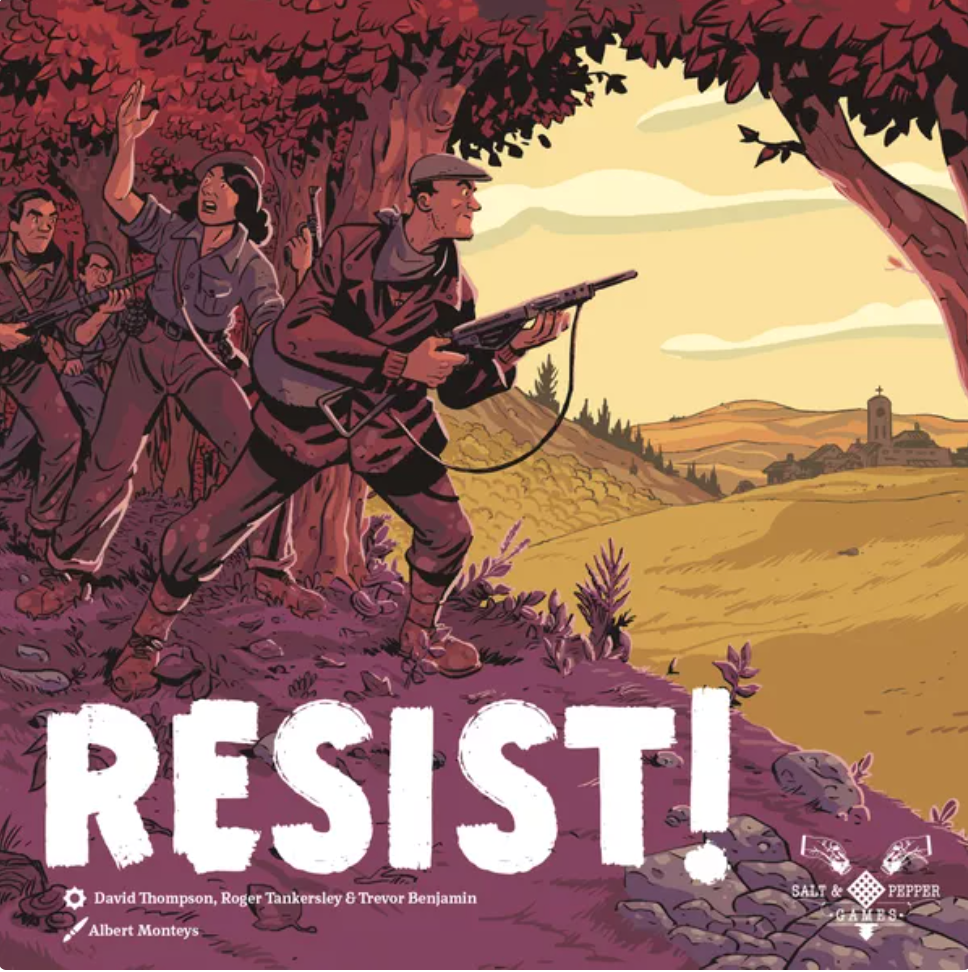

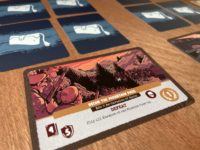
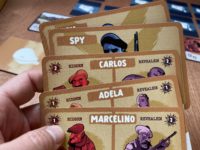
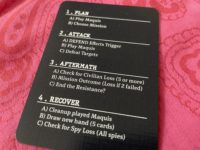
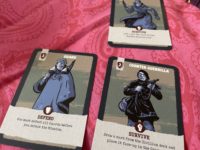
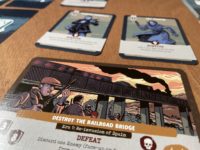



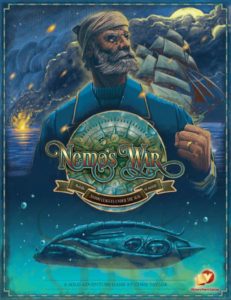
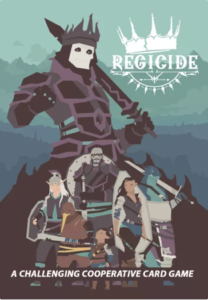
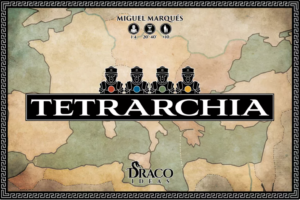
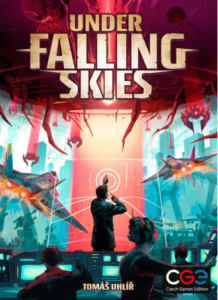
Sam says
Although the rules sound complex on the page, they're actually rather simple once you're up and running. It's a tough game, about a tough time, but with the theme of Fascism also sadly pertinent to the modern era. War games throw up not just tactical questions, but moral ones: is it okay to have 'fun' reliving (aspects of) a brutal, totalitarian regime? Is it right that lives given in battle are reduced to numbers in a puzzle? I think much of it is down to the tone in which the theme is explored and addressed. Resist! might be illustrated like a Herge comic, but I don't feel it's trivialising the subject matter, not least because of how it positions you, the player, as the resistance fighter. When done with respect, these kind of games can actually educate and illuminate the player and even inspire further thought an investigation on a subject they might otherwise know very little of. I don't think they can replace books in that regard, but games have changed so much in the last 30 years that it's increasingly common to see them used in different, creative and challenging ways. As to it's value purely as a game, It does veer more toward a puzzle than a narrative, and as such it's not one I yearn to play over and over. But it's rather deftly constructed, and always a challenge.